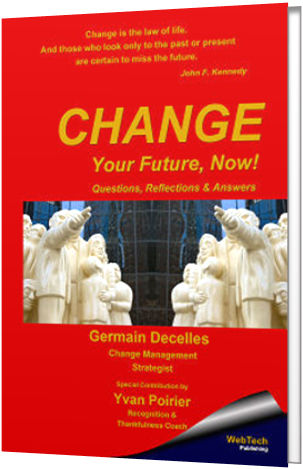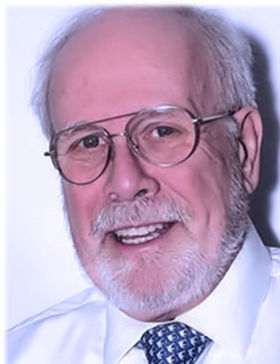|
Article published on LinkedIn.com: July 05, 2023
07_knowlege_wisdom_070523.pdf

Knowledge &
Wisdom
Knowledge
refers to the information, understanding, and skills that you
gain through education or experience.
It refers to
the hard facts and the data that can be available to anyone if
he or she has the right resources. For example, you can have
practical, medical, or scientific knowledge.
Wisdom, on the
other hand, refers to the ability to make sensible decisions
and give good advice because of the experience and knowledge
that you have.
Someone may
have all the knowledge about a subject but may not have the
wisdom to utilize this knowledge properly to be able to act in
a sensible manner.
You can gain
knowledge by educating yourself, but you can gain wisdom only
by experience.
Growth has its many forms and manifests itself in human
beings. Knowledge about growth can lead to wisdom of sorts.
Remember that
if you are born with this deep-rooted desire to grow from
within, you need to set your priorities right. Your aims and
ambitions all need to be clear concerning what you want to do
in life, along with the experience that gets attached to it
all.
What is the difference between being
knowledgeable and being wise?
When you grow,
you grow in two ways: one in terms of volume and the other in
terms of qualitative knowledge. I have often noted that there
is a thin line of difference between being knowledgeable and
being wise. It is seldom that you find a combination of both.
When you grow in experience, you may or may not understand the
need for it, until after you have learned from it.
You might have
wanted to be a painter. If so, spending a little time painting
billboards can help you gain some knowledge that you may
otherwise be devoid of. And it is this experienced that can
help make you wise.
So what does
any experience entail? Your experience gives you knowledge; it
empowers you with those things that you have learned. Instead
of merely accepting the facts that you are not familiar with,
you are enticed into acquiring first-hand information about
those areas. This in turn leads to growth. "I don't know" and
"I am not sure" are mere words that make you search for more.
Once you have
reached this stage, growth occurs automatically. Acceptance of
what you do not know, in short, leads to growth. Your aims and
aspirations are stepping-stones to knowledge; following
unfamiliar paths leads to growth and thus towards wisdom.
You have
experienced your body, to a degree, your mind to a point, and
you have experienced the world, to some extent. You might have
also experienced the energy which makes this body and mind
function. Beyond this, you have not experienced anything at
all.
Remember that
everything else is just pure, unadulterated imagination, and
your imagination functions in whatever way society has taught
you. Take stock of what experience you have and have not had,
and all that is not there in your experience accept it as, "I
do not know". This is very, very essential. Otherwise,
your whole life may pass by in pretensions.
Also, in the
same chapter you can familiarize yourself with questions,
reflections, and answers about:
What is the difference between being knowledgeable and being
wise?
How can I search for the unknown?
So how do I continually learn new things in life?
Can our general knowledge be updated?
Can I gain wisdom?
How can I learn from failure?
Should I believe I have tried all possible approaches?
Is there a technique for learning a subject better?
What is reason and how do I use it?
How do I strengthen my character?
What should I consider?
This 642-page book is the result of a four-year project
called Project Tomorrow. During the four-year period, we
followed more than 500 trainees, aged from 16 to 72.
The trainees
were from colleges and reinsertion programs in administration
and computer science. Some of the trainees that were
implicated where dropouts from school districts, and others
were new immigrants or unemployed workers from different
economic and social backgrounds.
To graduate,
the trainee had to perform during a period of three months in
a business environment. At the end of that time, an
appreciation evaluation was performed to determine both the
amount of change the trainee experienced during the period and
the impact of that change on the trainee.
Many of the
questions, reflections, and answers presented in this book are
issued from our findings during this period. We would like to
thank all the trainees for their efforts and determination
during the process.
In a nutshell, to change your life for a better future, you
will need
detailed
your
The book through questions, quotes and reflections
provides the necessary elements to explore your soul, to find
out who you really are, what your true passions are and how
you can become more efficient and effective, so you can shape
your life.
|

|
This 642-page book is the result of a four-year project
called Project Tomorrow. During the four-year period,
we followed more than 500 trainees, aged from 16 to
72.
It is also the fruit of forty years of experience
acquired with local and international organizations
and companies and during consultancy, change
management, transition, and marketing services. For
more information go to:
www.webtechpublishing.com .
|
About the Author
Decelles
Other publications:
ISO Pour Tous
– Le manuel
d’information ISO – Le guide de préparation ISO – La
gestion du changement en affaires – La gestion de
projet d’affaires – Le
changement POUR TOUS –
Change Your Future,
Now! – Mon succès est votre succès –
My Success Is Your Success.
Press Contact
Germain Decelles, o.s.j.
WebTech Management et Publication Incorpored
|
 |
—30 —
|